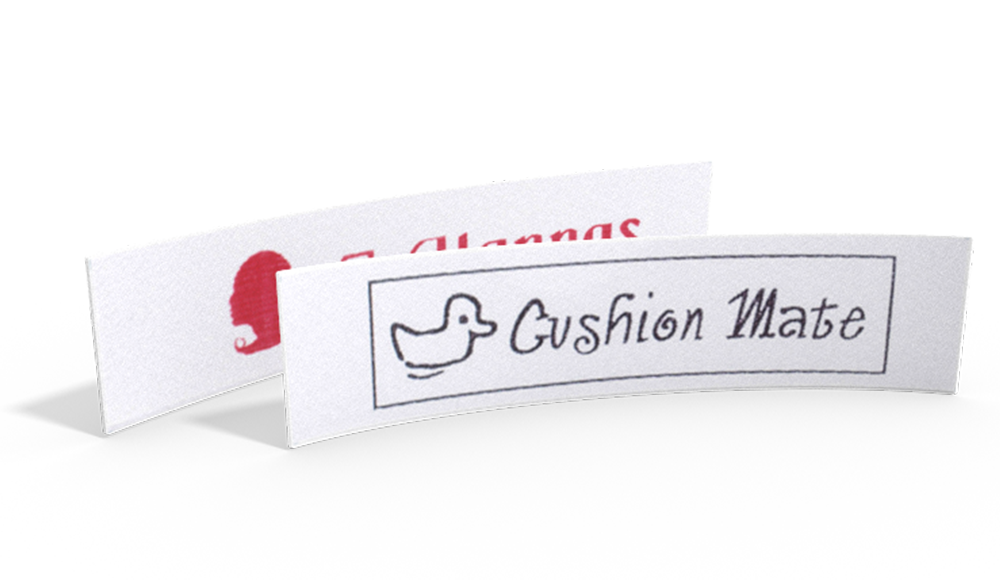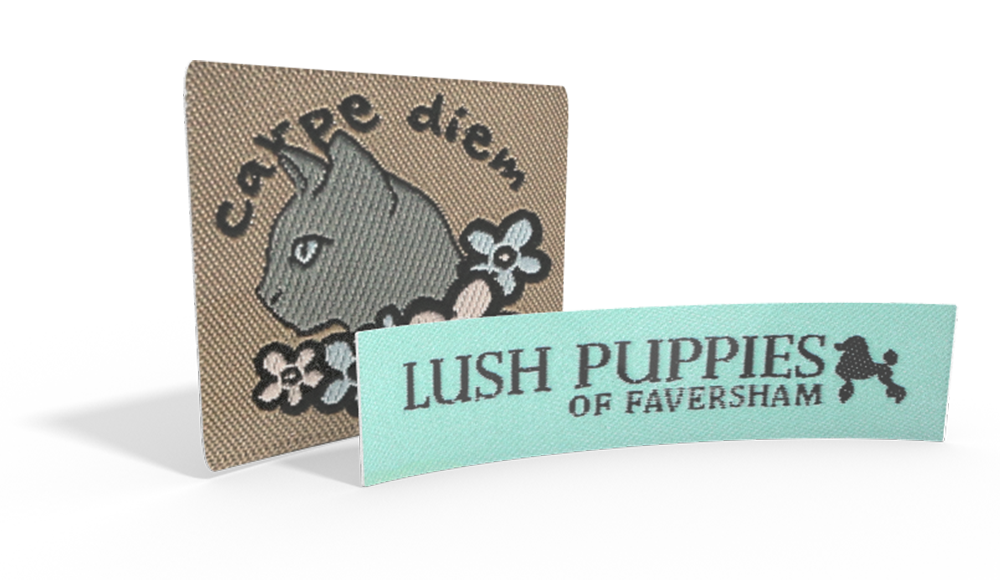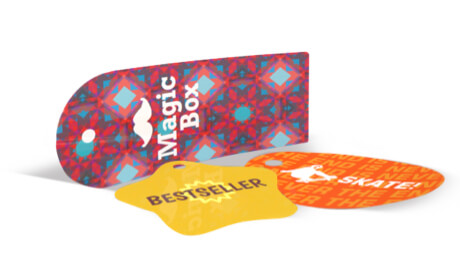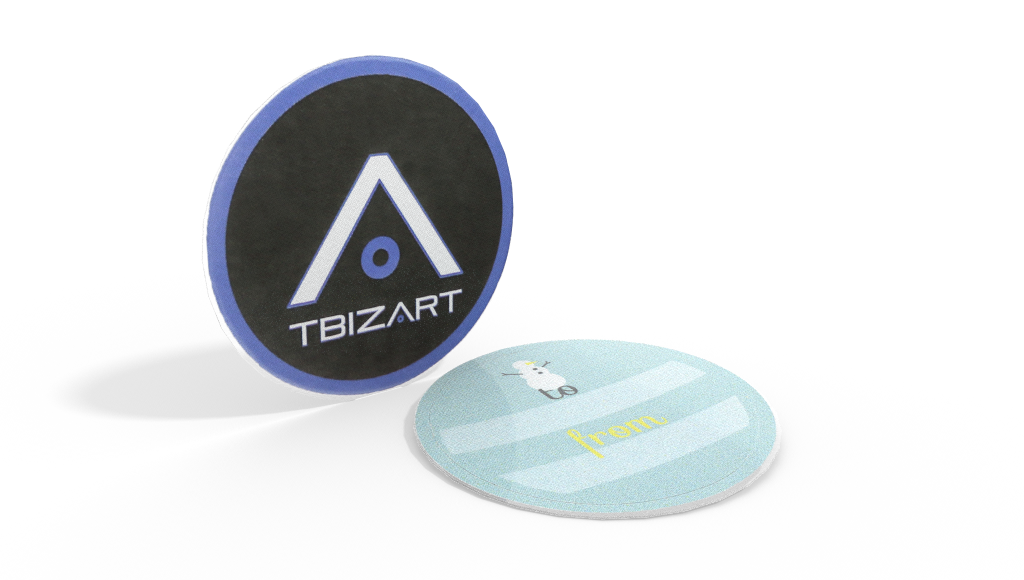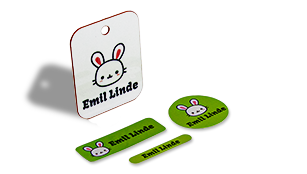"When you put your heart and soul into something you love, especially if that something is also your livelihood, it gets hard to see it for what it really is."
For so many of us, turning our love of sewing from a hobby into a livelihood is the ultimate dream. But it's also more than a little terrifying. How do you navigate the complexities of starting a business without putting the rest of your life on hold? Can it really be done? The answer is yes, and though it's different for everyone, it's going to require a lot of hard work, planning, and at least a little help from the pros. Here's what you need to know about taking your sewing hobby from side-hustle to full time business.
Browse the Wunderlabel website and discover all the possibilities! >>
Do some soul searching
Running your own business is tough, and it's not for everyone. Though some people say if you're doing what you love, you'll never work a day in your life, others would counter that by monetizing what you love, you turn what used to be a fun activity into more of the daily grind. Which of these would be true for you?
On a more practical front, take stock of your time, energy, and financial situation. How much of each can you afford to spend on a new business venture? Can you survive the two to three years it typically takes for a new business to first turn a profit? What are you willing to sacrifice, and what isn't negotiable? Laying out these ground rules for yourself before you launch your business is crucial. It might not make the work any easier, but at least you'll know what you're getting into!
Dig into research
What kind of business are you planning? How will it work? Are you creating products to sell? Where will you sell them? What will you sell? Could you feasibly create enough items to meet your goals? These are just a few of the questions you'll need to answer before you can start making plans. Research your local competition and your online competitors. Is there enough business to go around? Make careful plans regarding your products and services. Who would your suppliers be? What are their policies about minimum orders? How quickly could you get more material if need be? The more questions you answer at the outset, the easier it will be to create your business plan.
Create a business plan
Once you've done your research and answered as many questions as you can think of, it's time to create your business plan. This is a detailed outline of how your business will work, how you plan for it to grow, how it will be funded, and all the other details, like staffing and business structure. If you're looking for investors or financing to help get your business off the ground, you'll need to complete this plan before you start looking. It's an important document, but remember, it isn't set in stone. If you find after the first year that one product is far outperforming the rest, you can adapt your plan to let you focus on what's doing well. If, on the other hand, you're not meeting your goals yet, you can also refresh your plan to be more in line with realistic growth.
Separate out the finances
It might be tempting to keep your business as just another branch of your household finances, but as your accountant will tell you, it's best to keep everything separate. Decide what you're willing to invest initially and open new accounts with your bank, credit cards, PayPal, and any other sources you might use to take or send payments.
Deal with the pros
And speaking of accountants, make sure you set up appointments to at least discuss your plans with a lawyer specializing in small businesses and an accountant. They can advise you on all the legal and technical matters that are crucial lynch-pins in any business—things like taxes, business structure and registration, and documentation. Even if you ultimately decide not to keep these kinds of professionals on retainer, at least you'll be able to start your business on firm foundations with their expertise on your side.
Plan for growth
There's nothing worse than feeling like you missed an opportunity because you weren't ready for it. As your business starts to grow, you need to have a plan in place. For example, say you become a popular seamstress for bridal alterations. Will you turn clients down if you have too many? Hire in a secondary seamstress who does some of the work? Partner with another seamstress who might give you a small commission for sending work her way? Having a plan for dealing with the good things that can happen in your business is just as important as planning for the scary things!
Gain repeat customers
One of the best ways to build your customer base is to keep your fans coming back for more. Keep in touch with your customers through social media or email, and let them know when you've got something new coming up. Offer special incentives to repeat customers, or create a loyalty or rewards system to encourage further purchases. In some sewing businesses, such as beginners' classes or bridal, it's not always practical to expect repeat customers for the same type of product or service. Instead, ask those customers to refer their friends and family to you!
Have an online presence
Even if you don't plan to offer ecommerce options right away, it's a good idea to have some kind of online presenceso that customers can keep engaging with you after they've left your craft show booth or sewing class. In today's information age, it's also crucial for reaching new customers and helping to convince them that you're just the sewing business they're looking for. Though your own business website is ideal, you don't need to start out with one if you're not quite ready. A Facebook page can provide an initial way for you to get information to your customers and give them a way to contact you without needing to hire a web developer. If you're tech savvy, there are plenty of DIY website platforms that you can use to build your own site. Just make sure to spend lots of time clicking around to see that it's streamlined and easy to use.
Protect your property
This is especially important if you create sewing patterns, one-of-a kind designs, or invent a product of your own. The internet makes it easy for intellectual property thieves to pass off your hard work as their own. Part of your discussion with a lawyer should be about what kinds of products you plan to make, and how you can protect them from people who would copy and sell your work. This can include patents, copyright registration, trade or service marks, or other techniques, depending on the situation. Sometimes, just letting plagiarists know you have your property protected is enough for them to abandon their theft, but do know that these disputes can result in expensive and lengthy legal battles, especially if you haven't filed for the appropriate protection. Decide what you're willing to fight for, and make sure it's protected from the start.
Don't over-reach
As your business starts to stabilize and gain customers, it can be tempting to try to grow too quickly. Overbooking clients, planning for too many craft fairs, or committing to oversized wholesale orders can be a recipe for lost customers if you're unable to fulfill or end up cutting corners to try to meet your deadlines. Don't risk it! If you've planned for growth, stick to your plan and keep your business stable as it grows.
Keep records of everything
And we mean everything! From the which craft shows you attend to what you sell to which vendors provided the supplies you used to make things. That way, you'll always have the references right at your fingertips when you need to decide whether you want to repeat that show, try a new vendor, or change up your product mix. It's also crucial for tax documentation, so having receipts for all income and expenses can save you from time consuming and stressful audits later on.
Be brutally honest with yourself
When you put your heart and soul into something you love, especially if that something is also your livelihood, it gets hard to see it for what it really is. So whether you find your business has grown beyond your ability to manage yourself and it's time to bring in help, or if things aren't growing the way you've hoped and you'll have to push back opening your own store for another year, it's easy to avoid making those decisions. This is your baby. Maybe you just want to keep it under your control, or aren't ready to face that it's not yet as successful as you'd hoped. While these feelings are natural, they're not helpful, either for you, or your business. Always try to be brutally honest about the state of your business. It won't make the tough choices less tough, but it can help you make those choices before the decision is taken out of your hands.
If you're turning your sewing hobby into a business, you're going to need labels. We can help you with that!


